Gen Z calling for more honesty on social media, experts say
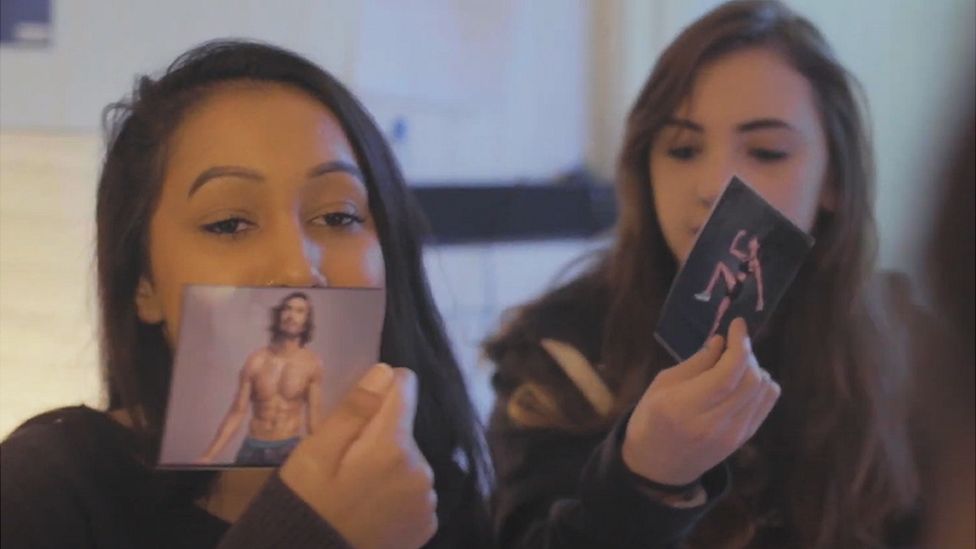
Could social media be forced to clean up its act? Experts say young people, the drivers and target audience for sites like Instagram, are impatient to see greater authenticity online because of their growing awareness of how it can negatively affect their mental health.
Generation Z, people aged from 18 to 25, has been credited with the rise in popularity of ethical companies and now is thought to be responsible for changing how brands, specifically in the cosmetics world, approach their online presence.
Social media commentators are reporting a shift in behaviour away from the highly polished, aesthetically-pleasing world that Instagram used to serve up, in exchange for a “simple, back to basics” reality that is bringing people more authentic and more relatable role models.
That trend is supported by campaigns such as #filterdrop – which in 2020 encouraged social media users to post selfies without using a filter in the hope of seeing “more real skin” online.
Sasha Pallari, who leads the campaign, said she realised how damaging the use of filters – with their ability to brighten your skin, change your nose shape or plump your lips – was to people’s metal health.
Sasha went on to lobby the Advertising Standards Authority, which, as a result, ruled that influencers could not use filters in adverts if they exaggerated the effect of a product.
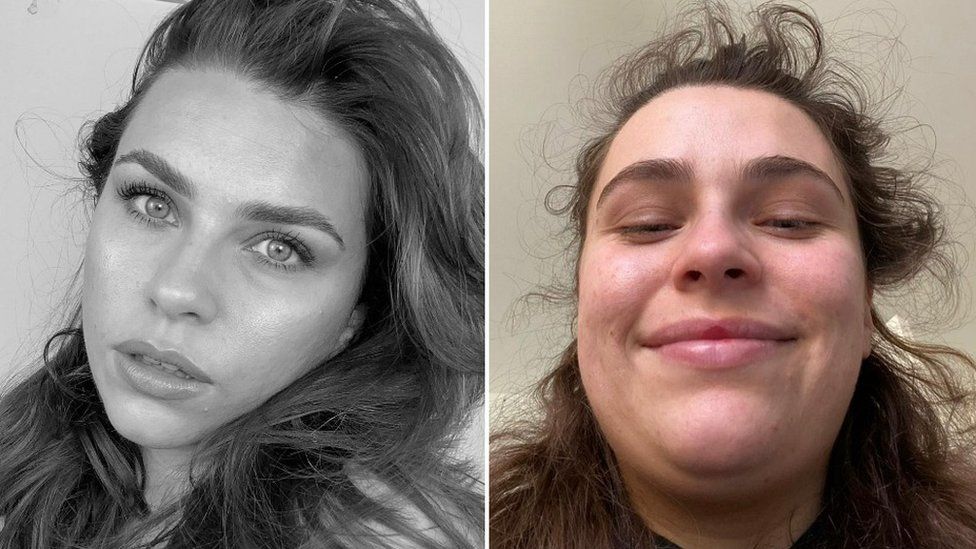
“Gen Z are far more aware and conscious of brands’ ethical position on things and what they stand for, and their expectations of brands to act responsibly,” Matt Navarra said.
He is a leading social media commentator who previously advised the government as a digital communications expert.
“I think those expectations and understanding of this age group has put pressure on industry as a whole to change, so I would definitely say there has been an acceleration of this shift.”
Sasha, a 30-year-old professional make-up artist and curve model from Somerset, claims companies ditching skin filters on social media is “no longer just a trend” but is now a “necessity”.
“That is actually all I ever wanted,” she said.
“It was never to ‘out’ people for not being confident enough to show up unfiltered, it was for there to be more restrictions to be put in place so that people don’t have an option … that is what I think has happened now.
“Brands have been made to realise how damaging this can be, it was a cycle that everyone was caught up in… but we are now in a better place for sure.”
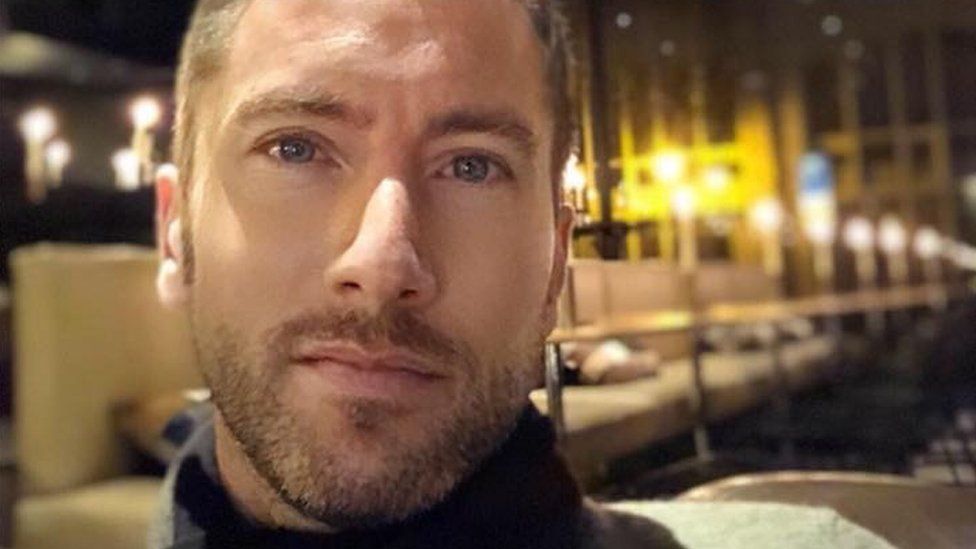
Mr Navarra agrees.
“What we have seen in social media over the last couple of years is this shift towards things that look less polished, less very aesthetically pleasing, much more simple and back to basics,” he said.
“There has been an increase in how savvy they [younger people] are around what they are seeing is possibly not necessarily real.”
He said the change in mindset was down to a combination of factors, including parenting and education, as well as campaign’s like Sasha’s, and a change in the type of role models children look up to.
One company hoping to set an example is Cult Beauty.
Last year it launched the UpCloseOnSkincare campaign aiming to dispel unrealistic depictions of skin.
Cult Beauty said it fully supported Sasha’s campaign and was “stoked to see her passion drive actual change to the ASA regulations”.
Its CEO Alexia Inge said: “Manipulating images to present an unattainable ideal, or over-represent how a product looks on the skin, hair or lashes should be consigned to history, like corsets and whitewashing.”
She said The UpCloseOnSkincare campaign focused on “no filters, no photoshop… just skin”.
According to its research, 45% of Cult Beauty’s community said they would feel uncomfortable uploading an unfiltered image of their skin to social media.
Because of that, Ms Inge said it was important for the company to continue to encourage others “to celebrate and love the skin they were in”.
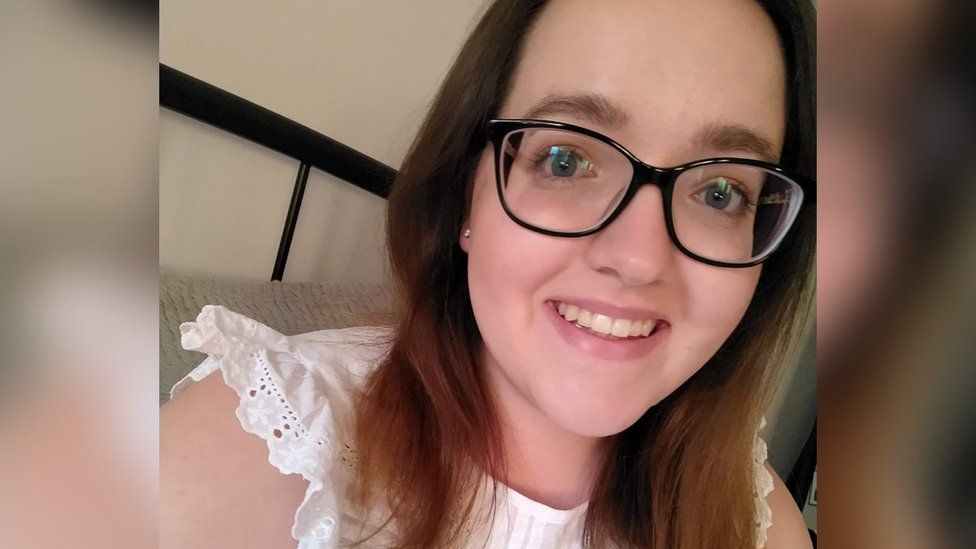
Young people who spoke to the BBC about their experiences on social media have repeatedly mentioned the negative impact it has on them.
Hannah said she used to follow influencers on Instagram who made her feel bad about her body image.
“It got me thinking that my body needed to look like theirs, and I began to have unrealistic expectations of being a slim model.
“I found it was really damaging my mental health, so I took a step back and unfollowed them,” she said.
‘Instagram is life’
Now she says she follows body-positive accounts.
“I’ve started to follow people who look more like me, and that’s improved my body confidence.”
Despite the success of her #filterdrop campaign, Sasha remains concerned about the effect it can have on young people.
And she is not alone.
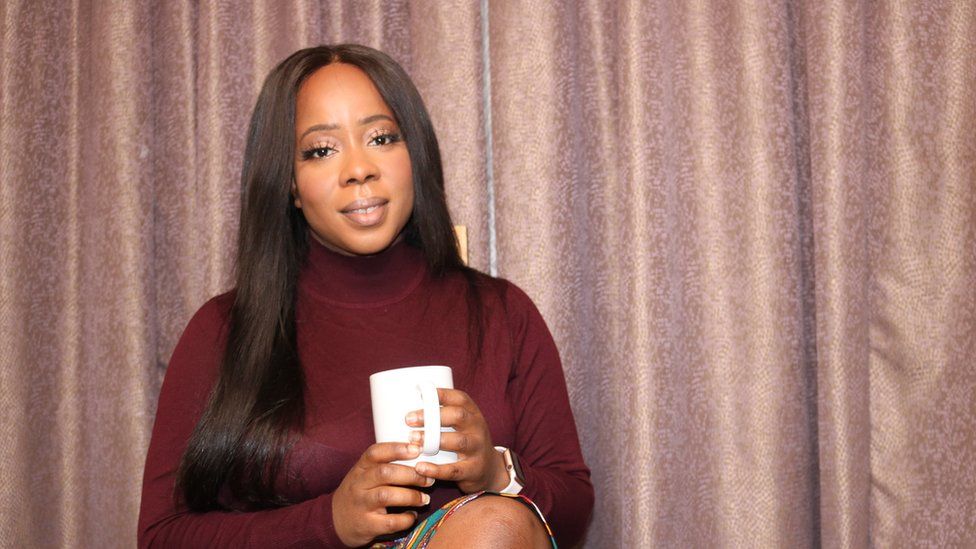
“Instagram is life and that virtual reality is becoming young people’s reality,” Mariam Adegoke, a GP and founder of the Adegoke Wellness Clinic, said.
Social media has led to an increased risk of anxiety, body dissatisfaction, low self-esteem and depression, she added.
Dr Adegoke blamed filters for creating artificial standards of what beauty is meant to look like and said people comparing themselves to others on apps like Instagram was also negatively impacting mental health.
‘Long way’ yet
“It is like a cycle, where the more they consume, the more they believe they are not good enough, or pretty enough, and filters go on to further consolidate that false belief,” she said.
Following the ASA ruling, Dr Adegoke said there had potentially been an improvement on a corporate level, but there was still a “very long way to go”.
She said perhaps some influencers had moved away from using filters, “maybe some in the sponsored posts they do for brands, but I think in general it is still definitely rife, and I still think that it is having the same impact it was having last year”, she added.
She agreed though that young people were becoming more aware that pictures and photos on social media were not always as they seemed.
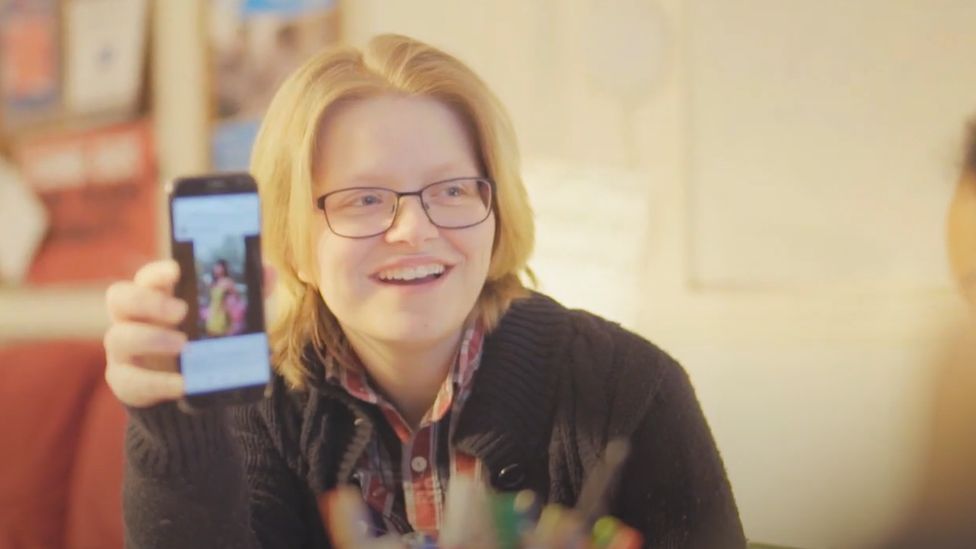
The use of filters remains widely debated.
They are used by millions of people every day – and seen by an even larger potential audience, Instagram alone has some 28 million users just in the UK, according to the German statistics company Statista.
The issue is gaining traction in decision-making circles; MP Luke Evans has introduced the Digitally Altered Body Images bill.
It is something Bristol mental health charity, Off the Record (OTR), tackles regularly.
Wellbeing practitioner, Antonia Gladders, helps to deliver a therapeutic group named “Shameless”.
The group is for young people, aged 11-17, in Bristol, north Somerset and south Gloucestershire, with body image concerns.
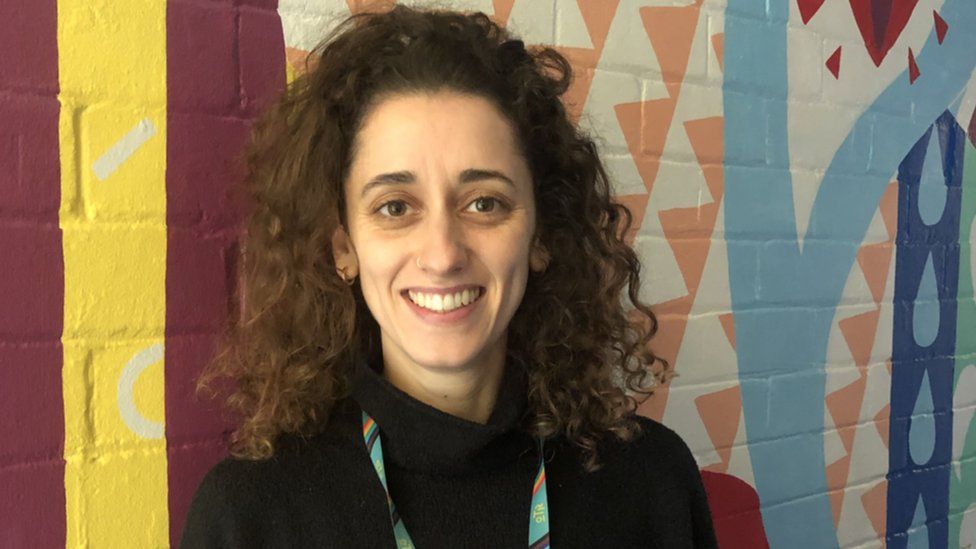
She said: “The young people we are seeing are coming to us feeling negatively about themselves, and how they look, a lack of confidence and feeling like they are fighting a losing battle, but are also really knowledgeable about social media and how that is impacting them and people their age.
“Filters and social media have just made an existing problem – of that ideal body type, which we have had throughout history – worse, it has amplified it to a new level.
“Anything that tries to challenge that, like #filterdrop, is really positive.
“We have to be cautious though, there is no quick fix, and while they are great, it is so tied up with mental health there needs to be a holistic approach in tackling the issue.”
Ms Gladders called for more therapeutic settings so that people who recognised they might be struggling had somewhere to turn.
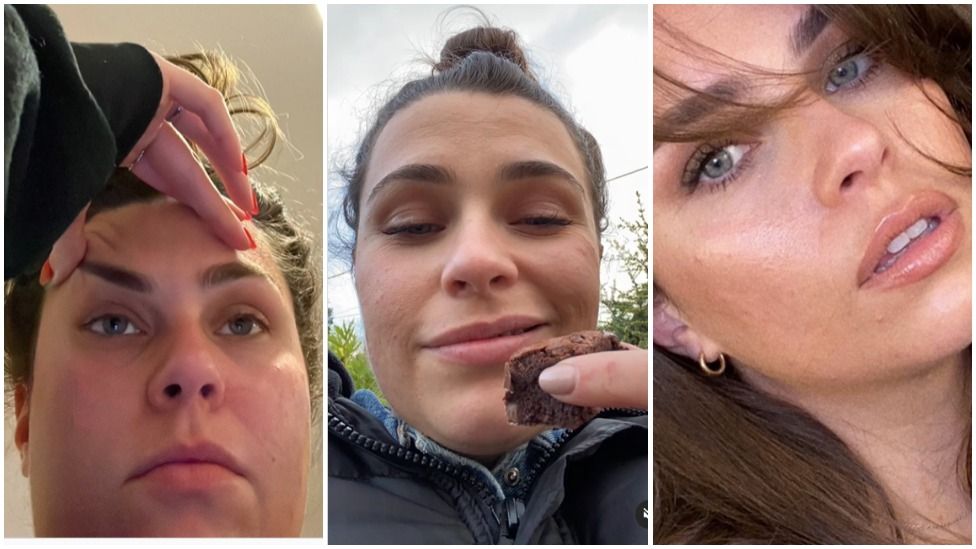
Building on the momentum behind #filterdrop Sasha is setting her sights on bigger targets, to help us remove the filters from our carefully curated lives on social media.
She wants to see greater openness and honesty online.
“I choose to show up online in a way that my entire life is unfiltered, I don’t have any issue with showing myself when I am done-up or when I have just woken up, there is no in-between.
“But I can show up unfiltered, and people might still think my life is incredible because I am only showing them two minutes out of a day.
“Unless I go to My Stories and say ‘I have had a bad day’, people will just assume my life is fantastic because that is just what we do.
“If we take away that false reality, and the editing and all of that, it helps people to realise that what they are comparing themselves to is similar to them, and that is normal.”
Mr Navarra says it is this, rather than any regulation on social media, that will drive change the most change.
He argues everyone has a role to play from parents, schools, educators, brands, influencers and regulatory bodies, for the sake of our young people.
He says these diverse groups can achieve different things towards the common goal of protecting the mental health of young and vulnerable users as they grow up.
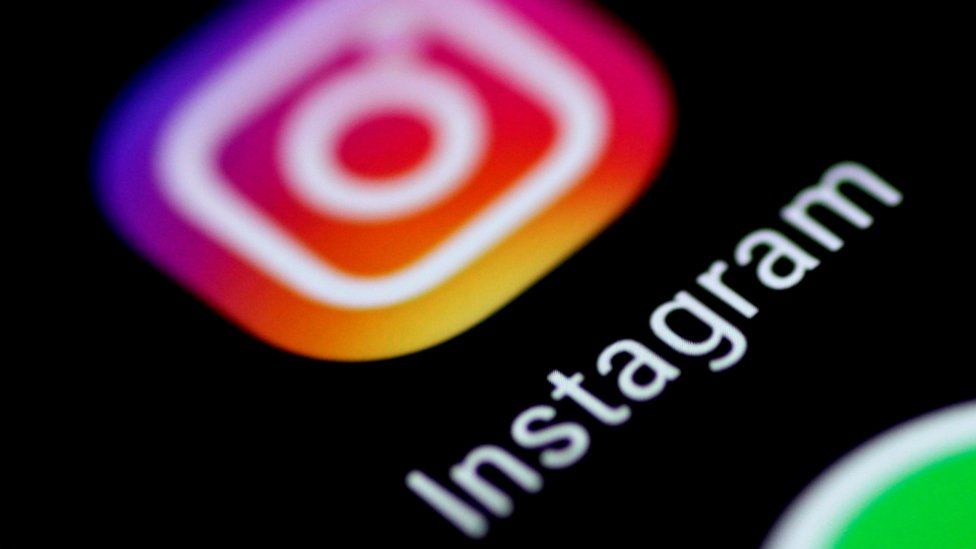
“We are at a pivotal moment now in terms of regulation and particularly in the UK and Europe, which is seen as a leading light in terms of this kind of stuff,” he said.
“There is a need for the government to set the tone and poke the parameters that these companies have to work within … but what will really help shift peoples’ experiences online is more about that education and what people see in their feeds.”
“This level of desire for more authentic, relatable, believable characters and role models, is the thing for me that brings about the biggest hope and biggest amount of change and we have started to see that quite significantly,” he concludes.
Dr Adegoke said she would like to see more regulation on social media – where she said the pressure on people first starts.
“Ultimately it bottoms down to honesty and integrity,” she said.
“We need to see a balance of life and that it isn’t all good in the way Instagram, or Snap Chat or whatever social media you use, may make you think.”

Follow BBC West on Facebook, Twitter and Instagram. Send your story ideas to: bristol@bbc.co.uk
-
- 13 January
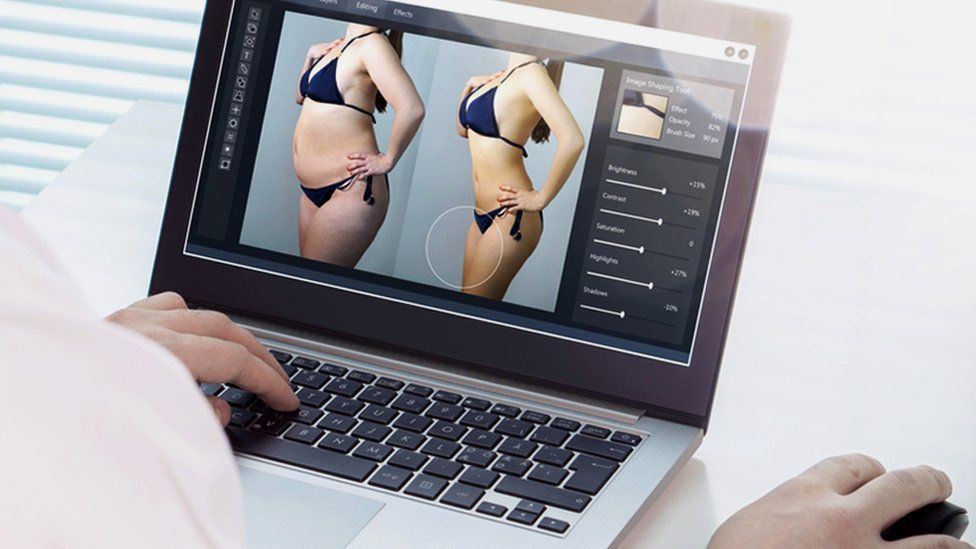
-
- 3 February 2021
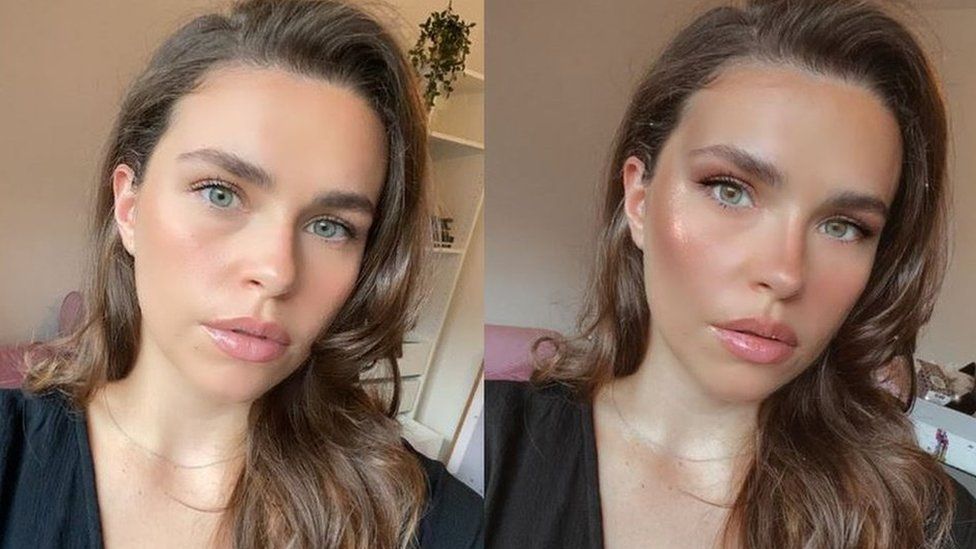
-
- 27 January 2021
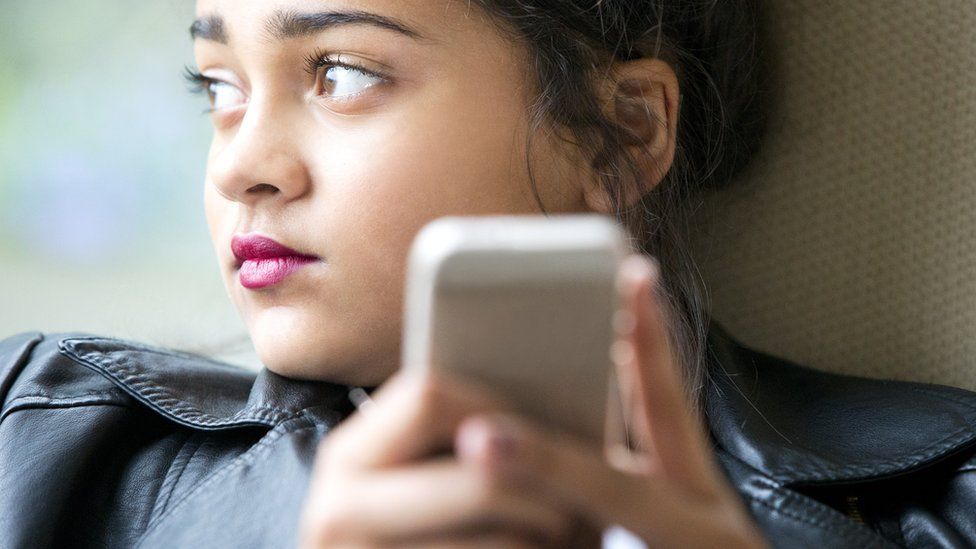
-
- 15 September 2020

-
- 7 September 2020



